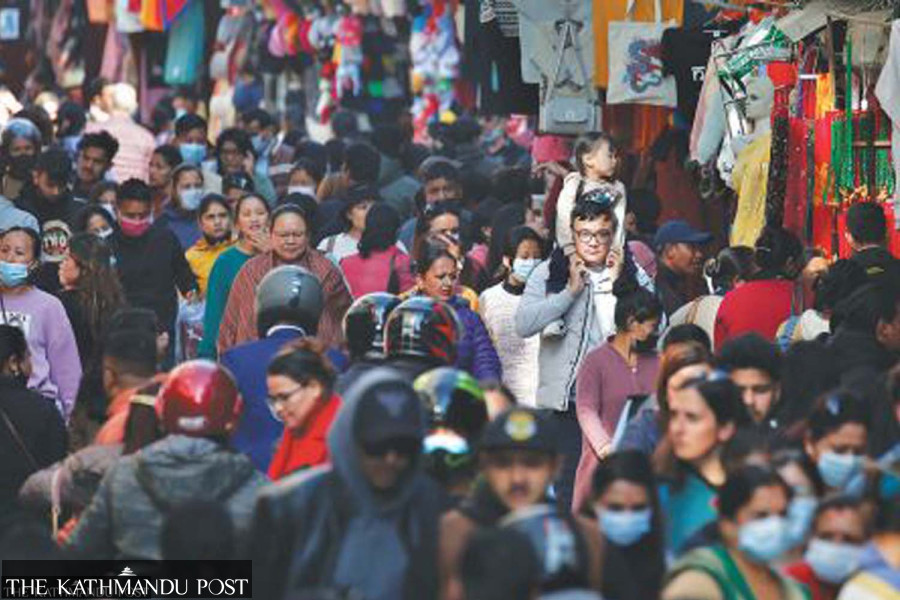Editorial
Covid coming
Nepal is again witnessing coronavirus cases. But there seems to be little preparation.
We all hope that a new year will bring us good news, sound health and prosperity. But, as the saying goes, while we hope for the best, we would be wise to prepare for the worst. For one, Nepal seems headed for another uptick in the number of coronavirus cases, as those returning from India ferry the virus this side of the border. The southern neighbour has seen a rise in infections in the past month, with an outbreak of JN.1, a new Covid-19 variant.
Given its rapid spread in China, Indonesia, the Philippines, Malaysia and Singapore, the World Health Organisation has classified JN.1 as a separate “variant of interest.” The Ministry of Health and Population in Nepal has now asked the public to return to the basic guidelines of Covid-19: wearing masks, avoiding crowds, maintaining social distance and frequently washing hands. Nonetheless, people have long let down their guards, returned to normal, and started enjoying festivals, jatras and gatherings in full swing. It would not be easy to persuade them to give up on these freedoms—yet again. Meanwhile, healthcare institutions have cut down the number of medical workers appointed during the pandemic days as well as test kits in PCR-testing laboratories. Antigen test kits are unavailable at health desks of border crossings, and many PCR kits are reportedly out of date.
In a recent Post report, healthcare experts raised serious concerns, seeking the country’s proactive steps, as the new variant could affect older adults, individuals with low immunity and those with chronic medical conditions. Many Asian countries have already reintroduced thermal scanners and face masks. Singapore has issued a travel advisory; Malaysia has reintroduced community tracing through its “test, report, isolate, inform, seek” framework and has advised the elderly and those with underlying medical issues to take a Covid booster dose.
While no severe cases and hospitalisations have been reported of late in Nepal, people’s immunity may have waned as it has been a long time since their last jab. The vaccination programmes are nowhere to be seen in the country even though the WHO in November 2023 updated the recommendations on Covid-19 shots based on a person’s vaccination history, age and health condition.
As per the recommendation, those who have never received a vaccine should get one or two doses depending on their health condition. Among the “high-priority groups” who previously got at least one dose, adults over 75 or 80 years old and those over 50 or 60 with comorbidities should be revaccinated 6 to 12 months after the most recent dose. Further, adults over 50 or 60 and adults with comorbidities should get the vaccine 12 months after the most recent dose. The organisation recommended that health workers, pregnant persons, and individuals with underlying health conditions be kept under “sub-population with special considerations” and given vaccines accordingly. However, routine vaccination for healthy adults, children, and adolescents is not recommended.
Given the coronavirus’ rapid spread in communities, Nepal should immediately implement the WHO’s vaccine recommendations and expedite jabbing those in high-priority and special consideration groups. Healthy adults should adhere to the Covid-19 guidelines and help the country prepare for yet another Covid battle. There is also an urgent need to deploy health personnel to the southern border and Tribhuvan International Airport, and establish separate Covid wards in hospitals with sufficient PCR labs and antigen test kits. The loss of 12,000 Nepalis and thousands of infections during the first, second and third waves of the Covid-19 pandemic should not be forgotten.




 25.96°C Kathmandu
25.96°C Kathmandu














